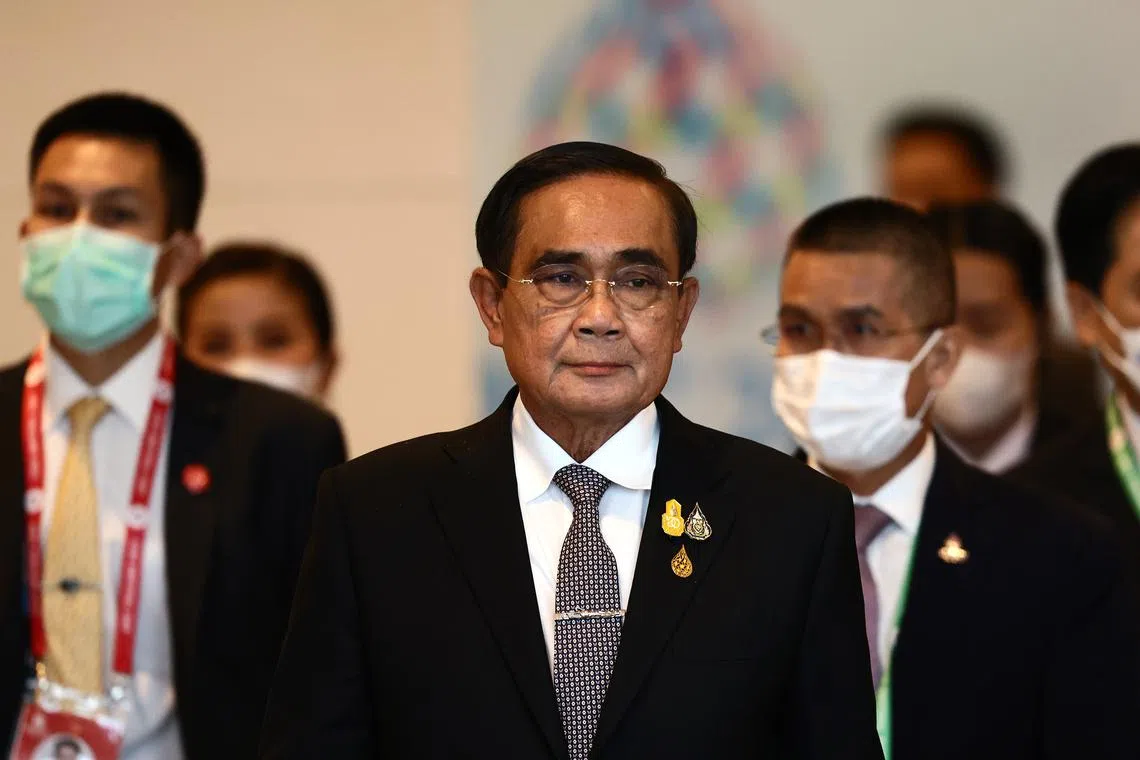Asia-Pacific leaders adopt Bangkok Goals for sustainability
Sign up now: Get insights on Asia's fast-moving developments

Even before Apec, Thai Prime Minister Prayut Chan-o-cha had promoted the bio-circular-green economic model as a national agenda.
PHOTO: EPA-EFE
BANGKOK - Asia-Pacific Economic Cooperation (Apec) leaders adopted the Bangkok Goals for sustainability at their meeting on Saturday, after a push by Thai Prime Minister Prayut Chan-o-cha to place a green economic model as a strategy for growth.
Thailand, as the host, had put sustainability at the front and centre of discussions that also included hot-button issues such as inflation, food and energy security and Russia’s war in Ukraine.
Even before Apec, Mr Prayut had promoted the bio-circular-green, or BCG, economic model as a national agenda, citing the need to revamp Thailand’s economic and social development strategies to get the country out of the middle-income trap.
The model advocates steps to strengthen sustainable growth built on a green economy where wastage is minimised, according to officials.
“The BCG economy model will be a key engine that drives tangible outcomes,” Mr Prayut said in his closing remarks at the summit.
“This will lay the foundation to drive the economic growth of the Asia Pacific region in an inclusive, sustainable, environment-friendly, and systematic manner.”
The Bangkok Goals outline a set of targets on environment, trade and investment, and waste management.
It also emphasises climate change and commitments to member economies’ net zero and carbon neutrality goals.
Apec economies represent more than 60 per cent of the world’s economic output.
Chinese President Xi Jinping, US Vice-President Kamala Harris and Japanese Prime Minister Fumio Kishida were among attendees at the Apec leaders gathering.
The US will host next year’s summit in San Francisco


